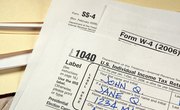
When you fail to pay your owed taxes on time in Massachusetts, interest and penalties will begin to accrue. Massachusetts taxpayers actually need to be aware of more than 20 different interest and penalty rates that apply based on tax issues. The two big penalties are "Failure to File a Timely Return" and "Failure to Pay a Tax When Due."
Tax penalties are applied by the Massachusetts Department of Revenue (DOR). The good news is you can use a Massachusetts tax calculator to make figuring it out easier
Penalty for Unpaid or Unfiled Taxes
The penalties for failing to file and failing to pay use the same percentages. The penalty rate is 1 percent of the unpaid total per month. Taxpayers may be responsible for up to a maximum of 25 percent of the full unpaid tax amount.
Read More: Massachusetts State Tax Deductions
It's important to know that all penalties for filing or paying your taxes late will continue to accrue until the tax department receives your outstanding payment or return. That means that you may need to account for mailing times to ensure that unpaid taxes don't linger even though you've technically taken care of the problem.
If your payment is received after the date you base your submission on, you may receive an additional tax bill for any outstanding penalties and interest that are still owed. It's essential that you don't ignore any notices or letters from the DOR after you finish your payment because a very small bill may still be out there.
Calculating Your Massachusetts Tax Penalties
The good news is that you don't need to be a math whiz to be able to figure out how much to add in penalties on top of what you owe in late or unpaid taxes. The Massachusetts Department of Revenue actually offers a page linking to a simple online Massachusetts tax calculator that allows you to plug in some basic information to calculate interest and penalties on taxes.
Here's the information you'll need to use to assess your own taxes and penalties to submit an accurate payment to the DOR:
- The tax year.
-
The amount of tax due after credits and timely payments (include withholding).
-
If applicable, acknowledgment of a valid tax extension for the tax year in question.
- Tax due after credits and timely payments (include withholding).
- Acknowledgment of the M-2210 penalty (underpayment of estimated tax). Typically, 80 percent of your total tax must be paid through withholding and/or estimated tax payments during the tax year in order to avoid this penalty.
- Expected filing date.
If you're specifically looking to calculate your penalty for an underpayment of estimated taxes, the Massachusetts DOR provides a separate underpayment penalty calculator just for that. If you're not using the calculator, you'll need to apply the daily penalty total manually based on how many days past the filing deadline you are submitting a payment or return.
Read More: Which States Do Not Charge State Income Taxes?
Understanding Responsibility for Tax Penalties
Tax penalties for late taxes or returns apply for both individuals and businesses in Massachusetts. If a corporation or partnership is behind on payments, it's possible that the individual responsible for collecting and remitting taxes could be personally liable for the tax bill, interest and penalties.
Failure to address a tax bill with any accompanying interest owed could lead to charges of tax evasion that come with fines totaling hundreds of thousands of dollars and potential jail time.
Read More: What If You Get Audited for an Honest Mistake?
References
Writer Bio
Adam Luehrs is a writer during the day and a voracious reader at night. He focuses mostly on finance writing and has a passion for real estate, credit card deals, and investing.

